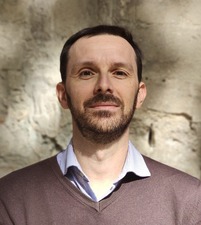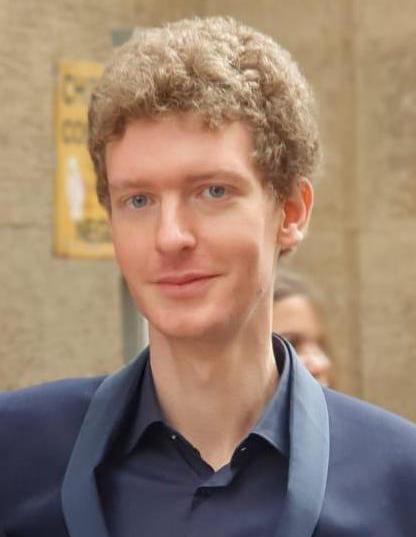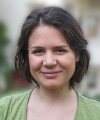Studying at the University of Verona
Here you can find information on the organisational aspects of the Programme, lecture timetables, learning activities and useful contact details for your time at the University, from enrolment to graduation.
Academic calendar
The academic calendar shows the deadlines and scheduled events that are relevant to students, teaching and technical-administrative staff of the University. Public holidays and University closures are also indicated. The academic year normally begins on 1 October each year and ends on 30 September of the following year.
Course calendar
The Academic Calendar sets out the degree programme lecture and exam timetables, as well as the relevant university closure dates..
| Period | From | To |
|---|---|---|
| Sem. 1A | Sep 26, 2022 | Nov 5, 2022 |
| Sem. 1B | Nov 14, 2022 | Dec 23, 2022 |
| Sem. 2A | Feb 13, 2023 | Mar 30, 2023 |
| Sem. 2B | Apr 11, 2023 | May 27, 2023 |
| Session | From | To |
|---|---|---|
| Sessione Invernale | Jan 9, 2023 | Feb 11, 2023 |
| Sessione Estiva | Jun 5, 2023 | Jul 22, 2023 |
| Sessione Autunnale | Aug 28, 2023 | Nov 23, 2023 |
| Sessione straordinaria invernale | Jan 8, 2024 | Feb 17, 2024 |
| Session | From | To |
|---|---|---|
| Sessione Estiva | Jul 10, 2023 | Jul 15, 2023 |
| Sessione Autunnale | Nov 6, 2023 | Nov 11, 2023 |
| Sessione invernale | Apr 2, 2024 | Apr 8, 2024 |
| Period | From | To |
|---|---|---|
| Festa di Ognissanti | Nov 1, 2022 | Nov 1, 2022 |
| Festività Della Immacolata Concezione | Dec 8, 2022 | Dec 8, 2022 |
| Vacanze natalizie | Dec 24, 2022 | Jan 8, 2023 |
| Vacanze di Pasqua | Apr 7, 2023 | Apr 10, 2023 |
| Festa della Liberazione | Apr 25, 2023 | Apr 25, 2023 |
| Festa del lavoro | May 1, 2023 | May 1, 2023 |
| Festa del Santo Patrono | May 21, 2023 | May 21, 2023 |
| Festa della Repubblica | Jun 2, 2023 | Jun 2, 2023 |
| Chiusura estiva | Aug 14, 2023 | Aug 19, 2023 |
Exam calendar
Exam dates and rounds are managed by the relevant Humanistic Studies Teaching and Student Services Unit.
To view all the exam sessions available, please use the Exam dashboard on ESSE3.
If you forgot your login details or have problems logging in, please contact the relevant IT HelpDesk, or check the login details recovery web page.
Should you have any doubts or questions, please check the Enrollment FAQs
Academic staff
 evita.calabrese@univr.it
evita.calabrese@univr.it
 sofia.piacentin@univr.it
sofia.piacentin@univr.it
 pieralberto.porcedducilione@univr.it; pierre_pordd@yahoo.it
pieralberto.porcedducilione@univr.it; pierre_pordd@yahoo.it
 045 8028732
045 8028732
Study Plan
The Study Plan includes all modules, teaching and learning activities that each student will need to undertake during their time at the University.
Please select your Study Plan based on your enrollment year.
1° Year
| Modules | Credits | TAF | SSD |
|---|
Further activities2° Year activated in the A.Y. 2023/2024
| Modules | Credits | TAF | SSD |
|---|
2 modules between the following3 modules among the following2 modules between the following3° Year It will be activated in the A.Y. 2024/2025
| Modules | Credits | TAF | SSD |
|---|
3 modules among the following| Modules | Credits | TAF | SSD |
|---|
Further activities| Modules | Credits | TAF | SSD |
|---|
2 modules between the following3 modules among the following2 modules between the following| Modules | Credits | TAF | SSD |
|---|
3 modules among the following| Modules | Credits | TAF | SSD |
|---|
2 modules among the following3 modules among the followingLegend | Type of training activity (TTA)
TAF (Type of Educational Activity) All courses and activities are classified into different types of educational activities, indicated by a letter.
Philosophical Hermeneutics (2024/2025)
Teaching code
4S00985
Teacher
Not yet assigned
Credits
6
Language
Italian
Scientific Disciplinary Sector (SSD)
M-FIL/01 - THEORETICAL PHILOSOPHY
Period
Sem. 1A dal Sep 23, 2024 al Nov 3, 2024.
Courses Single
Authorized
Learning objectives
Hermeneutics
The principal aim of the course is to give an adequate understanding of what philosophical hermeneutics properly is. Hermeneutics is usually understood as the discipline and art of interpretation. This type of hermeneutics arises from the exegesis of sacred and humanistic texts, which follows the rediscovery of Greek civilization with the Italian Renaissance and the free reading of the Bible with the German Reformation. The theory of interpretation is a variety of philological and religious hermeneutics, it is a tool for understanding the written text and the dogmatic subjectivity. Instead, properly philosophical hermeneutics is not a theory of interpretation and has nothing to do with text and language. Philosophical hermeneutics was born in the twentieth century with Husserl - which defines phenomenology as a “hermeneutics of conscious life” – and with Heidegger, for whom the exercise of philosophy is a “hermeneutics of facticity”, i.e. the understanding existence has of itself. Such hermeneutics is not “interpretation” but “explication” and “unfolding” (Auslegung), i.e. spontaneous articulation of being, an event that precedes language and in which Being unfolds and participates in all possible ways of being.
At the end of the course, students will be able to follow the twisting paths of 20th century hermeneutics with greater awareness and agility, thus enhancing their knowledge of contemporary philosophical debate. They will have the capacity to autonomously comprehend texts and subjects addressed during the course, to employ a proper philosophical terminology, to communicate philosophical topics with specialists and non-specialists, and the ability to to continue studies at a MA level.
Type D and Type F activities
Una quota dei crediti corrispondenti all’attività formativa dell’intero triennio, determinata dal presente Regolamento in 12 CFU, è riservata alla scelta autonoma da parte della/o studente. Questa scelta può essere orientata sia verso corsi/esami non seguiti/sostenuti in precedenza, sia verso iterazioni di corsi/esami, sia ancora verso altre attività (tutorati, ulteriori competenze linguistiche, partecipazione a convegni o seminari), purché tutte preventivamente approvate dal Collegio Didattico e/o dalla Commissione Didattica del Dipartimento. Tra i 12 crediti dovrà comunque essere presente almeno un esame con voto. In conformità al dettato del D.M. 270/04 e alla luce delle raccomandazioni espresse dal D.M. 26 luglio 2007, capo 3 lettera n), la scelta, che non può essere predeterminata (fatto salvo quanto indicato per le iterazioni), deve comunque essere ispirata a coerenza col piano formativo della/del singola/o studente.
In caso di attività formative non rientranti nelle categorie previste, si dovrà fare richiesta di valutazione al Collegio Didattico di Filosofia fornendo adeguate motivazioni.
Altre informazioni sono reperibili nella Guida per i crediti liberi che è possibile trovare quì
COMPETENZE TRASVERSALI
Scopri i percorsi formativi promossi dal Teaching and learning centre dell'Ateneo, destinati agli studenti iscritti ai corsi di laurea, volti alla promozione delle competenze trasversali:
https://talc.univr.it/it/competenze-trasversali
| years | Modules | TAF | Teacher |
|---|---|---|---|
| 1° 2° 3° | Conflict. Recognize, prevent, manage | D |
Paola Dal Toso
(Coordinator)
|
| 1° 2° 3° | EXPOSED BODIES - Diotima seminar | D |
Rosanna Cima
(Coordinator)
|
| 1° 2° 3° | The Talks of EThoS Research Centre | D |
Carlo Chiurco
(Coordinator)
|
| 1° 2° 3° | III Reading seminar of classical texts | D |
Alessandro Stavru
(Coordinator)
|
| 1° 2° 3° | X National Conference of the Italian Society of Applied Anthropology (SIAA) “Rethinking Sustainability through Applied Anthropology” | D |
Stefania Pontrandolfo
(Coordinator)
|
| years | Modules | TAF | Teacher |
|---|---|---|---|
| 1° 2° 3° | Conflict. Recognize, prevent, manage | D |
Paola Dal Toso
(Coordinator)
|
| 1° 2° 3° | Business English for everybody | D |
Manuel Boschiero
(Coordinator)
|
| 1° 2° 3° | Russian for everybody | D |
Maria Gabriella Landuzzi
(Coordinator)
|
| 1° 2° 3° | The Talks of EThoS Research Centre | D |
Carlo Chiurco
(Coordinator)
|
| 1° 2° 3° | III Reading seminar of classical texts | D |
Alessandro Stavru
(Coordinator)
|
| 1° 2° 3° | La materia oscura dello sguardo | D |
Gianluca Solla
(Coordinator)
|
| 1° 2° 3° | X National Conference of the Italian Society of Applied Anthropology (SIAA) “Rethinking Sustainability through Applied Anthropology” | D |
Stefania Pontrandolfo
(Coordinator)
|
| years | Modules | TAF | Teacher |
|---|---|---|---|
| 1° 2° 3° | The Talks of EThoS Research Centre | D |
Carlo Chiurco
(Coordinator)
|
| 1° 2° 3° | III Reading seminar of classical texts | D |
Alessandro Stavru
(Coordinator)
|
| 1° 2° 3° | Gnoseology and Metaphysics Workshop | D |
Davide Poggi
(Coordinator)
|
| 1° 2° 3° | OMeGA - Horizons, Models and Assisted Parenting | D |
Alessandra Cordiano
(Coordinator)
|
| 1° 2° 3° | Tai-Ti aiuto io | D |
Alessandra Cordiano
(Coordinator)
|
| 1° 2° 3° | Making the invisible visible. Study day | D |
Giorgio Gosetti
(Coordinator)
|
| years | Modules | TAF | Teacher |
|---|---|---|---|
| 1° 2° 3° | The Talks of EThoS Research Centre | D |
Carlo Chiurco
(Coordinator)
|
| 1° 2° 3° | III Reading seminar of classical texts | D |
Alessandro Stavru
(Coordinator)
|
| 1° 2° 3° | Gnoseology and Metaphysics Workshop | D |
Davide Poggi
(Coordinator)
|
| 1° 2° 3° | OMeGA - Horizons, Models and Assisted Parenting | D |
Alessandra Cordiano
(Coordinator)
|
| 1° 2° 3° | Tai-Ti aiuto io | D |
Alessandra Cordiano
(Coordinator)
|
| 1° 2° 3° | University and DSA: Methods and strategies for studying and studying at university | D |
Ivan Traina
(Coordinator)
|
Career prospects
Module/Programme news
News for students
There you will find information, resources and services useful during your time at the University (Student’s exam record, your study plan on ESSE3, Distance Learning courses, university email account, office forms, administrative procedures, etc.). You can log into MyUnivr with your GIA login details: only in this way will you be able to receive notification of all the notices from your teachers and your secretariat via email and soon also via the Univr app.
Student mentoring
Linguistic training CLA
Gestione carriere
Practical information for students
Documents
| Title | Info File |
|---|---|
|
|
pdf, it, 325 KB, 02/05/23 |
|
|
pdf, it, 212 KB, 02/05/23 |
|
|
pdf, it, 131 KB, 02/05/23 |
Graduation
Documents
| Title | Info File |
|---|---|
|
|
pdf, it, 99 KB, 13/10/23 |
|
|
pdf, it, 101 KB, 10/04/24 |
































